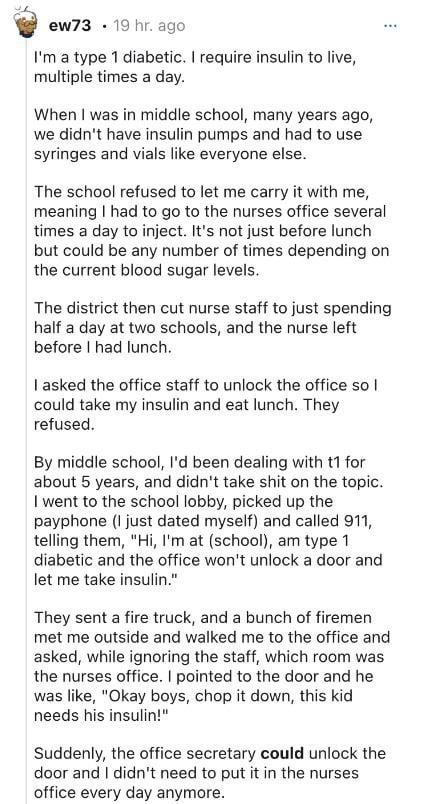Text
Siobhan and Brennan are honestly so similar, they're both giant nerds, they're both hilarious, they both love to get angry as a bit, they both love to opt in to the spiciest game changer episodes and then get really mad at Sam (and/or their fellow contestants)
This is also why Siobhan out of all the intrepid heroes is the best at roasting Brennan
51 notes
·
View notes
Text
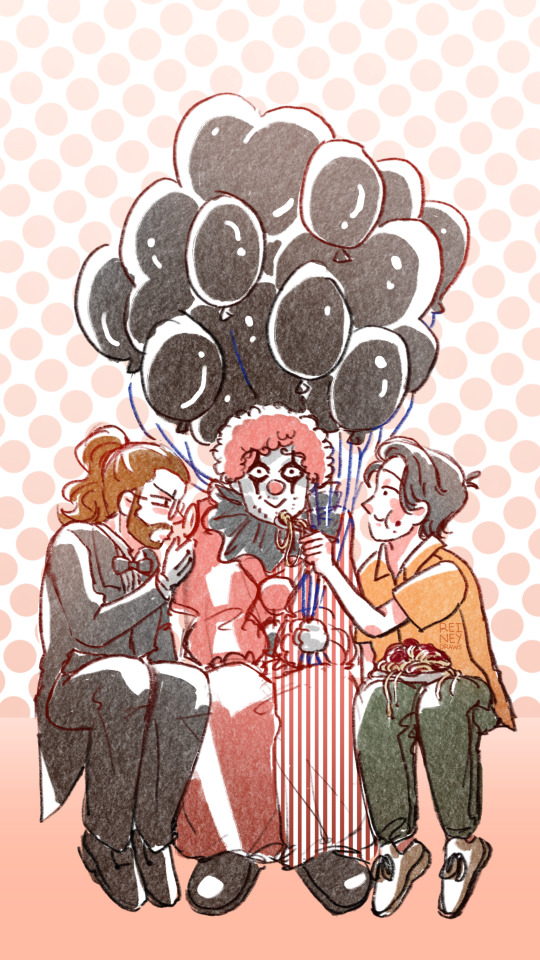
i think, if they were real, they would hang out while waiting for the mortals in the time loop to reset. and they'd be buddies.
491 notes
·
View notes
Text

The myth of white superiority. Unlearn all of it.
256 notes
·
View notes
Text
I just realized that the reason Brennan never questioned too deeply the premise of the last Game Changer episode was because, since it wasn't designed with him in mind (he apparently filled in for Grant at the last minute, bc Grant tested positive for Covid when he arrived on set), he had no reason to believe Sam was out to psychologically torture him 😭
2K notes
·
View notes
Text
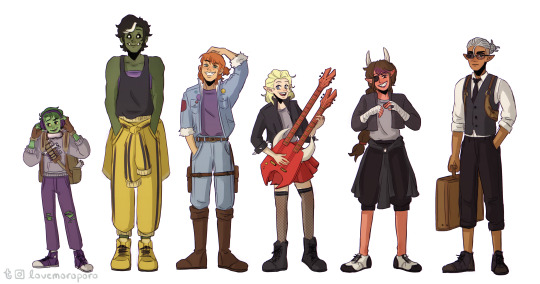

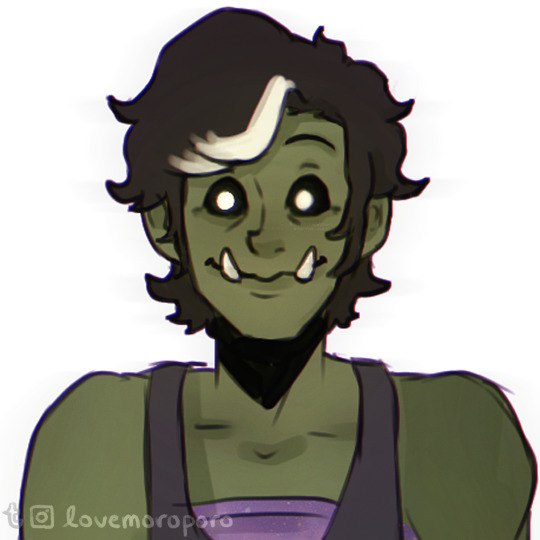



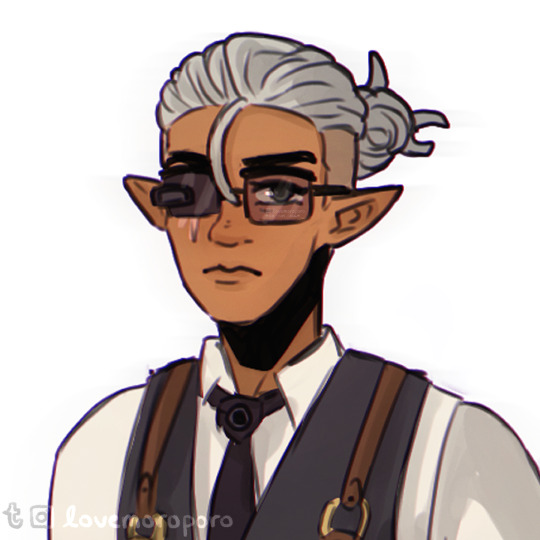
sketched a lil outfit swap during their downtime
446 notes
·
View notes
Text
The meanest thing Sam ever did wasn't trapping people, or psychologically tormenting people, or continuously tricking people for the purpose of entertainment. No, the meanest thing he ever did was tear up Mike's, Ify's, and Siobhan's hand drawn pictures of ducks.
848 notes
·
View notes
Text
The Three Commandments
The thing about writing is this: you gotta start in medias res, to hook your readers with action immediately. But readers aren’t invested in people they know nothing about, so start with a framing scene that instead describes the characters and the stakes. But those scenes are boring, so cut straight to the action, after opening with a clever quip, but open in the style of the story, and try not to be too clever in the opener, it looks tacky. One shouldn’t use too many dialogue tags, it’s distracting; but you can use ‘said’ a lot, because ‘said’ is invisible, but don’t use ‘said’ too much because it’s boring and uninformative – make sure to vary your dialogue tags to be as descriptive as possible, except don’t do that because it’s distracting, and instead rely mostly on ‘said’ and only use others when you need them. But don’t use ‘said’ too often; you should avoid dialogue tags as much as you possibly can and indicate speakers through describing their reactions. But don’t do that, it’s distracting.
Having a viewpoint character describe themselves is amateurish, so avoid that. But also be sure to describe your viewpoint character so that the reader can picture them. And include a lot of introspection, so we can see their mindset, but don’t include too much introspection, because it’s boring and takes away from the action and really bogs down the story, but also remember to include plenty of introspection so your character doesn’t feel like a robot. And adverbs are great action descriptors; you should have a lot of them, but don’t use a lot of adverbs; they’re amateurish and bog down the story. And
The reason new writers are bombarded with so much outright contradictory writing advice is that these tips are conditional. It depends on your style, your genre, your audience, your level of skill, and what problems in your writing you’re trying to fix. Which is why, when I’m writing, I tend to focus on what I call my Three Commandments of Writing. These are the overall rules; before accepting any writing advice, I check whether it reinforces one of these rules or not. If not, I ditch it.
1: Thou Shalt Have Something To Say
What’s your book about?
I don’t mean, describe to me the plot. I mean, why should anybody read this? What’s its thesis? What’s its reason for existence, from the reader’s perspective? People write stories for all kinds of reasons, but things like ‘I just wanted to get it out of my head’ are meaningless from a reader perspective. The greatest piece of writing advice I ever received was you putting words on a page does not obligate anybody to read them. So why are the words there? What point are you trying to make?
The purpose of your story can vary wildly. Usually, you’ll be exploring some kind of thesis, especially if you write genre fiction. Curse Words, for example, is an exploration of self-perpetuating power structures and how aiming for short-term stability and safety can cause long-term problems, as well as the responsibilities of an agitator when seeking to do the necessary work of dismantling those power structures. Most of the things in Curse Words eventually fold back into exploring this question. Alternately, you might just have a really cool idea for a society or alien species or something and want to show it off (note: it can be VERY VERY HARD to carry a story on a ‘cool original concept’ by itself. You think your sky society where they fly above the clouds and have no rainfall and have to harvest water from the clouds below is a cool enough idea to carry a story: You’re almost certainly wrong. These cool concept stories work best when they are either very short, or working in conjunction with exploring a theme). You might be writing a mystery series where each story is a standalone mystery and the point is to present a puzzle and solve a fun mystery each book. Maybe you’re just here to make the reader laugh, and will throw in anything you can find that’ll act as framing for better jokes. In some genres, readers know exactly what they want and have gotten it a hundred times before and want that story again but with different character names – maybe you’re writing one of those. (These stories are popular in romance, pulp fantasy, some action genres, and rather a lot of types of fanfiction).
Whatever the main point of your story is, you should know it by the time you finish the first draft, because you simply cannot write the second draft if you don’t know what the point of the story is. (If you write web serials and are publishing the first draft, you’ll need to figure it out a lot faster.)
Once you know what the point of your story is, you can assess all writing decisions through this lens – does this help or hurt the point of my story?
2: Thou Shalt Respect Thy Reader’s Investment
Readers invest a lot in a story. Sometimes it’s money, if they bought your book, but even if your story is free, they invest time, attention, and emotional investment. The vast majority of your job is making that investment worth it. There are two factors to this – lowering the investment, and increasing the payoff. If you can lower your audience’s suspension of disbelief through consistent characterisation, realistic (for your genre – this may deviate from real realism) worldbuilding, and appropriately foreshadowing and forewarning any unexpected rules of your world. You can lower the amount of effort or attention your audience need to put into getting into your story by writing in a clear manner, using an entertaining tone, and relying on cultural touchpoints they understand already instead of pushing them in the deep end into a completely unfamiliar situation. The lower their initial investment, the easier it is to make the payoff worth it.
Two important notes here: one, not all audiences view investment in the same way. Your average reader views time as a major investment, but readers of long fiction (epic fantasies, web serials, et cetera) often view length as part of the payoff. Brandon Sanderson fans don’t grab his latest book and think “Uuuugh, why does it have to be so looong!” Similarly, some people like being thrown in the deep end and having to put a lot of work into figuring out what the fuck is going on with no onboarding. This is one of science fiction’s main tactics for forcibly immersing you in a future world. So the valuation of what counts as too much investment varies drastically between readers.
Two, it’s not always the best idea to minimise the necessary investment at all costs. Generally, engagement with art asks something of us, and that’s part of the appeal. Minimum-effort books do have their appeal and their place, in the same way that idle games or repetitive sitcoms have their appeal and their place, but the memorable stories, the ones that have staying power and provide real value, are the ones that ask something of the reader. If they’re not investing anything, they have no incentive to engage, and you’re just filling in time. This commandment does not exist to tell you to try to ask nothing of your audience – you should be asking something of your audience. It exists to tell you to respect that investment. Know what you’re asking of your audience, and make sure that the ask is less than the payoff.
The other way to respect the investment is of course to focus on a great payoff. Make those characters socially fascinating, make that sacrifice emotionally rending, make the answer to that mystery intellectually fulfilling. If you can make the investment worth it, they’ll enjoy your story. And if you consistently make their investment worth it, you build trust, and they’ll be willing to invest more next time, which means you can ask more of them and give them an even better payoff. Audience trust is a very precious currency and this is how you build it – be worth their time.
But how do you know what your audience does and doesn’t consider an onerous investment? And how do you know what kinds of payoff they’ll find rewarding? Easy – they self-sort. Part of your job is telling your audience what to expect from you as soon as you can, so that if it’s not for them, they’ll leave, and if it is, they’ll invest and appreciate the return. (“Oh but I want as many people reading my story as possible!” No, you don’t. If you want that, you can write paint-by-numbers common denominator mass appeal fic. What you want is the audience who will enjoy your story; everyone else is a waste of time, and is in fact, detrimental to your success, because if they don’t like your story then they’re likely to be bad marketing. You want these people to bounce off and leave before you disappoint them. Don’t try to trick them into staying around.) Your audience should know, very early on, what kind of an experience they’re in for, what the tone will be, the genre and character(s) they’re going to follow, that sort of thing. The first couple of chapters of Time to Orbit: Unknown, for example, are a micro-example of the sorts of mysteries that Aspen will be dealing with for most of the book, as well as a sample of their character voice, the way they approach problems, and enough of their background, world and behaviour for the reader to decide if this sort of story is for them. We also start the story with some mildly graphic medical stuff, enough physics for the reader to determine the ‘hardness’ of the scifi, and about the level of physical risk that Aspen will be putting themselves at for most of the book. This is all important information for a reader to have.
If you are mindful of the investment your readers are making, mindful of the value of the payoff, and honest with them about both from the start so that they can decide whether the story is for them, you can respect their investment and make sure they have a good time.
3: Thou Shalt Not Make Thy World Less Interesting
This one’s really about payoff, but it’s important enough to be its own commandment. It relates primarily to twists, reveals, worldbuilding, and killing off storylines or characters. One mistake that I see new writers make all the time is that they tank the engagement of their story by introducing a cool fun twist that seems so awesome in the moment and then… is a major letdown, because the implications make the world less interesting.
“It was all a dream” twists often fall into this trap. Contrary to popular opinion, I think these twists can be done extremely well. I’ve seen them done extremely well. The vast majority of the time, they’re very bad. They’re bad because they take an interesting world and make it boring. The same is true of poorly thought out, shocking character deaths – when you kill a character, you kill their potential, and if they’re a character worth killing in a high impact way then this is always a huge sacrifice on your part. Is it worth it? Will it make the story more interesting? Similarly, if your bad guy is going to get up and gloat ‘Aha, your quest was all planned by me, I was working in the shadows to get you to acquire the Mystery Object since I could not! You have fallen into my trap! Now give me the Mystery Object!’, is this a more interesting story than if the protagonist’s journey had actually been their own unmanipulated adventure? It makes your bad guy look clever and can be a cool twist, but does it mean that all those times your protagonist escaped the bad guy’s men by the skin of his teeth, he was being allowed to escape? Are they retroactively less interesting now?
Whether these twists work or not will depend on how you’ve constructed the rest of your story. Do they make your world more or less interesting?
If you have the audience’s trust, it’s permissible to make your world temporarily less interesting. You can kill off the cool guy with the awesome plan, or make it so that the Chosen One wasn’t actually the Chosen One, or even have the main character wake up and find out it was all a dream, and let the reader marinate in disappointment for a little while before you pick it up again and turn things around so that actually, that twist does lead to a more interesting story! But you have to pick it up again. Don’t leave them with the version that’s less interesting than the story you tanked for the twist. The general slop of interest must trend upward, and your sacrifices need to all lead into the more interesting world. Otherwise, your readers will be disappointed, and their experience will be tainted.
Whenever I’m looking at a new piece of writing advice, I view it through these three rules. Is this plot still delivering on the book’s purpose, or have I gone off the rails somewhere and just stared writing random stuff? Does making this character ‘more relateable’ help or hinder that goal? Does this argument with the protagonists’ mother tell the reader anything or lead to any useful payoff; is it respectful of their time? Will starting in medias res give the audience an accurate view of the story and help them decide whether to invest? Does this big twist that challenges all the assumptions we’ve made so far imply a world that is more or less interesting than the world previously implied?
Hopefully these can help you, too.
632 notes
·
View notes
Text
apparently people are now purchasing thick water to make slimes with because of a trend on tiktok
thick water is for disabled people who can’t swallow properly. stores usually have extremely limited supplies of it.
please don’t buy thick water for fun or to make slime with. it’s literally the only way some disabled people can drink anything. It’s not a fucking toy
51K notes
·
View notes
Text
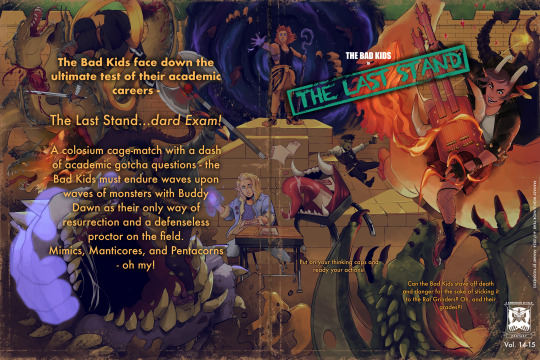

They optimized the hell out of that fight. Well done intrepid heroes!
2K notes
·
View notes
Text
also i've been thinking about it, but the description of the last stand being that "no one's ever survived it" probably was a little misleading in terms of whether the bad kids would have a hard time with the test. after all, it's traditionally for students in academic jeopardy, so it's unlikely that a bunch of straight-a, experienced adventurers have taken it very often. it's probably usually for adventuring parties for kids who are on academic probation, like max durden and his friends. they probably wouldn't finish the questions as quickly and the monster waves would just keep coming
1K notes
·
View notes
Text
It's so funny that the intrepid heroes kept telling Zac to "just crit dude" in NeverAfter and ever since he's been critting unstoppably for two seasons straight now
893 notes
·
View notes
Text

TWO HOURS AGO: an incredible photo taken by a ut austin student capturing something deeply poetic in my opinion, a line of state troopers eagerly waiting to arrest student protesters standing just behind a sign that reads "what starts here changes the world. its starts with you and what you do each day."
11K notes
·
View notes
Text
the Columbia University arrests are worse than they seem. They're arresting protesting students for trespassing. It goes without saying students cannot meaningfully "trespass" in the common areas of a university they attend. So Columbia University has suspended all student protestors from their institution, in the process revoking their access to housing, their belonging, and most crucially damaging their academic futures. We are witnessing full scale silencing and removal of anyone of conscience from the next generation of academia.
16K notes
·
View notes
Text

If you dare come at me about banning straws, I will throw you into the sun cannon. I’m disabled, I’m crippled, I need disposable plastic straws, and all those pricey ridiculous alternatives aren’t working as well. Plastic straws were invented for the disabled.
Way to shit all over a vital access need because you think straws are worse than corporate greed.
We all care about the turtles, the seals, the oceans, obviously. Notice how the easiest thing to yell about was something that would barely affect anything but appealed heavily to emotional discourse.
The disabled community is huge, and it can be joined by anyone. Most of those As Seen On TV products were invented for us. Society still mocks us and ignores us, and often outright harms us in multiple ways.
Communicate better. Listen better. But stop putting us out in the cold because you are inconvenienced by our simplest needs.
209K notes
·
View notes

